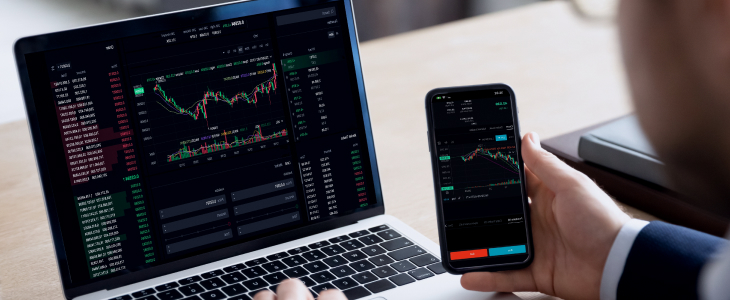
Forex Trading Training Mastering the Market 1716970563

Forex Trading Training: A Path to Financial Independence
The foreign exchange (forex) market is the largest and most liquid financial market in the world, with an estimated daily trading volume exceeding $6 trillion. As more individuals seek to capitalize on currency fluctuations, forex trading training has become essential for anyone looking to succeed in this competitive arena. Whether you’re a complete beginner or an experienced trader looking to refine your skills, understanding the fundamental concepts and strategies of forex trading is crucial. In this article, we will explore various facets of forex trading training and provide valuable insights into becoming a successful trader. For further information on trading platforms, visit forex trading training Brokers Argentina.
Understanding Forex Trading
Forex trading involves buying and selling currency pairs in order to profiting from changes in exchange rates. Each currency pair consists of two currencies: the base currency and the quote currency. The base currency is the first currency in the pair, while the quote currency is the second. Traders speculate on whether the value of the base currency will strengthen or weaken against the quote currency, aiming to execute profitable trades.
The Importance of Forex Trading Training
Trading forex without adequate training is a gamble that can lead to significant financial losses. Forex trading training provides potential traders with the knowledge and skills needed to navigate the complexities of the market. Here are some key benefits of undertaking forex trading training:
- Knowledge of Market Dynamics: A solid grasp of how currency markets operate is crucial for informed decision-making.
- Technical Analysis Skills: Learning how to analyze price charts and recognize trends can help traders make better predictions.
- Risk Management Techniques: Effective risk management strategies are essential for protecting your trading capital.
- Trading Psychology: Understanding the psychological aspects of trading can help you maintain discipline and focus.
Essential Components of Forex Trading Training

When considering forex trading training, look for courses or programs that cover the following essential components:
1. Market Analysis
Successful forex trading is heavily reliant on market analysis. There are two primary types of analysis: fundamental and technical. Fundamental analysis involves examining economic indicators, news events, and geopolitical developments to determine how they might affect currency prices. On the other hand, technical analysis focuses on historical price data and patterns to predict future movements.
2. Trading Strategies
A sound trading strategy is essential for consistent profitability. Forex training should introduce you to various trading strategies, such as scalping, day trading, swing trading, and position trading. Each strategy has its own time frame, risk level, and required skills, so understanding which one suits your personality and lifestyle is critical.
3. Risk Management
Risk management is paramount in forex trading. A good training program will teach you how to set stop-loss orders, manage position sizes, and diversify your trading portfolio. Understanding risk-reward ratios and ensuring you have a well-defined trading plan helps protect your investments.
4. Trading Psychology

Emotions play a significant role in trading success. Forex trading training should address the psychological challenges traders face, such as fear, greed, and overconfidence. Developing emotional resilience and maintaining discipline are vital for executing trades in a calm and focused manner.
Choosing the Right Forex Trading Training Program
With the plethora of forex trading training programs available, how do you choose the right one for you? Here are some factors to consider:
- Content Quality: Ensure the curriculum is comprehensive and covers critical aspects of forex trading.
- Instructor Expertise: Trainers should have practical experience in trading and a solid educational background.
- Flexibility: Look for programs that offer flexible learning options, such as online courses, webinars, or one-on-one coaching.
- Community and Support: A strong support system can enhance your learning experience. Check if the program offers access to forums, mentorship, or networking opportunities.
Continuing Education and Practice
Forex trading is an ever-evolving field, and continuous education is essential. After completing an initial training program, consider exploring advanced courses, attending webinars, and keeping up with market news. Additionally, practice trading in a simulated environment will allow you to apply your knowledge without risking real money. Many brokers offer demo accounts that let you practice with virtual funds while experiencing real-time market conditions.
Conclusion
Investing in forex trading training is a wise decision for anyone seeking to navigate the complexities of the currency markets successfully. With a solid understanding of market dynamics, proper risk management techniques, effective trading strategies, and an awareness of trading psychology, traders can enhance their chances of achieving consistent profitability. Remember, the journey to becoming a successful forex trader is ongoing, and continuous learning and practice are key to long-term success in the forex market.

